Ambassador Tijjani Muhammad-Bande, Nigeria’s Permanent Representative to the United Nations (UN), expressed concerns about the recent military takeovers witnessed in several African countries, stating that these coups are setbacks to the continent’s progress and prosperity.
Speaking in New York to the News Agency of Nigeria (NAN), Muhammad-Bande emphasized that any deviation from the democratic principles enshrined in the constitutions of regional and continental bodies, such as the Economic Community of West African States (ECOWAS) and the African Union (AU), represents a setback for Africa.
A wave of African coups
Muhammad-Bande remarks come in light of the succession of military coups occurring across Africa, with the most recent one taking place in Gabon.
Prior to Gabon, military coups were observed in Niger in July, Burkina Faso in 2022, and in Chad, Guinea, Sudan, and Mali in preceding years. Apart from Myanmar in 2021, all recent coups have occurred on the African continent.
The Nigerian envoy stressed that African nations have fought for their sovereignty and should have the freedom to determine their own paths. He emphasized that is crucial to call out any deviation from the democratic path and to educate those who may not fully understand the implications of military rule.
Nigerian UN envoy’s advocation for African nations right to self-determination
He asserted that military rule is not the direction Africa, or the subregion aspires to follow and that the continent values the right of the people to choose their own destiny within their country’s constitution.
His words:
- “In the same vein, people also should be free within their own nations to determine how they live and so that is not a big thing to act, it is simply consistent with this, for any setback, must be called out as a setback.
- “And people, who do not understand the meaning of military rule, should be told, that this is not the way the continent or the sub-region wants to go or the way the world wants to be.
- “And we want to be clear concerning the right of people to choose freely, because we also had to fight to free ourselves from colonialism, one country after another, some more peaceful than others.
- “But the result has been the same – to allow African countries to respect the choice of the people within the constitution of the country.”
Muhammad-Bande highlighted that the commitment to uphold democracy is well-established in the charters of both the AU and ECOWAS, and these principles are not new or arbitrary. He stressed the importance of adhering to the norms and values outlined in these organizations.
His words:
- “It is a simple agreement to live in a particular language of the constitution. So, this is the point where we are members of the United Nations.”
- “There are rules, there are norms and values embedded in that and we try to thrive to live up to those as the expectations; we have the constitution of Nigeria. We try to live by it,’
Nigeria’s ongoing role in international organizations
The envoy also revealed that Nigeria would continue to actively participate in ECOWAS, AU, and the UN, including the ongoing 78th session of the UN General Assembly.
Amb. Muhammad-Bande told the News Agency of Nigeria that Nigeria’s Minister of Foreign Affairs, Ambassador Yusuf Tuggar will provide further details on Nigeria’s stance on various issues during the session.
He further emphasized that Nigeria remains committed to upholding ECOWAS, AU, and the UN, and any actions contrary to the pursuit of peaceful and prosperous societies are considered setbacks that need to be addressed within the framework of these organizations.
- In his words, “I can tell you that for Nigeria, the whole question is that we are part of the ECOWAS and AU and also committed to the norms and values embedded in those organisations.
- “Also, the norms of the United Nations are very clear concerning peaceful, prosperous societies. Anything that is contrary to that is a setback.
- “We are working within the rules to ensure that we continue to make progress in helping people decide their fate.’’









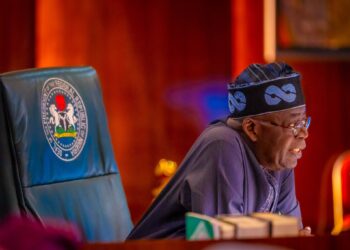
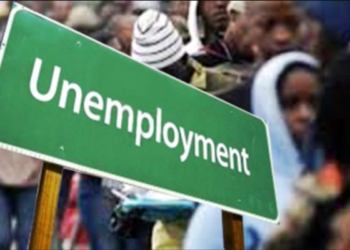
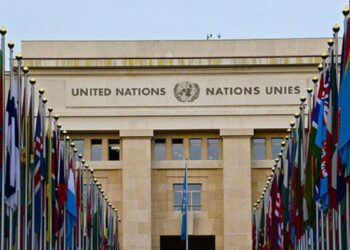
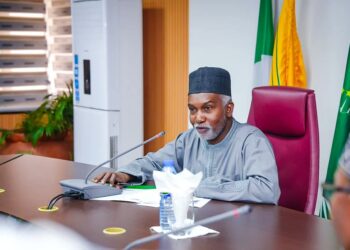
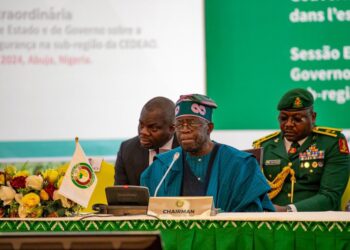










These international and regional bodies may soon outlive their usefulness and cease being taken seriously if they continue with such haphazard condemnation of these military takeovers without condemning the undemocratic, repressive, corrupt and unjustly civilian leadership styles that made these coups very popular among large portions of the youth in the respective countries. Of course, the soldiers may likely not be any better, but a situation whereby these bodies did little or nothing against the life presidential aspirations of the ousted leaders while they perpetrated their crafts may eventually turn the masses against them while perceiving them as elitist and insensitive to their plights.